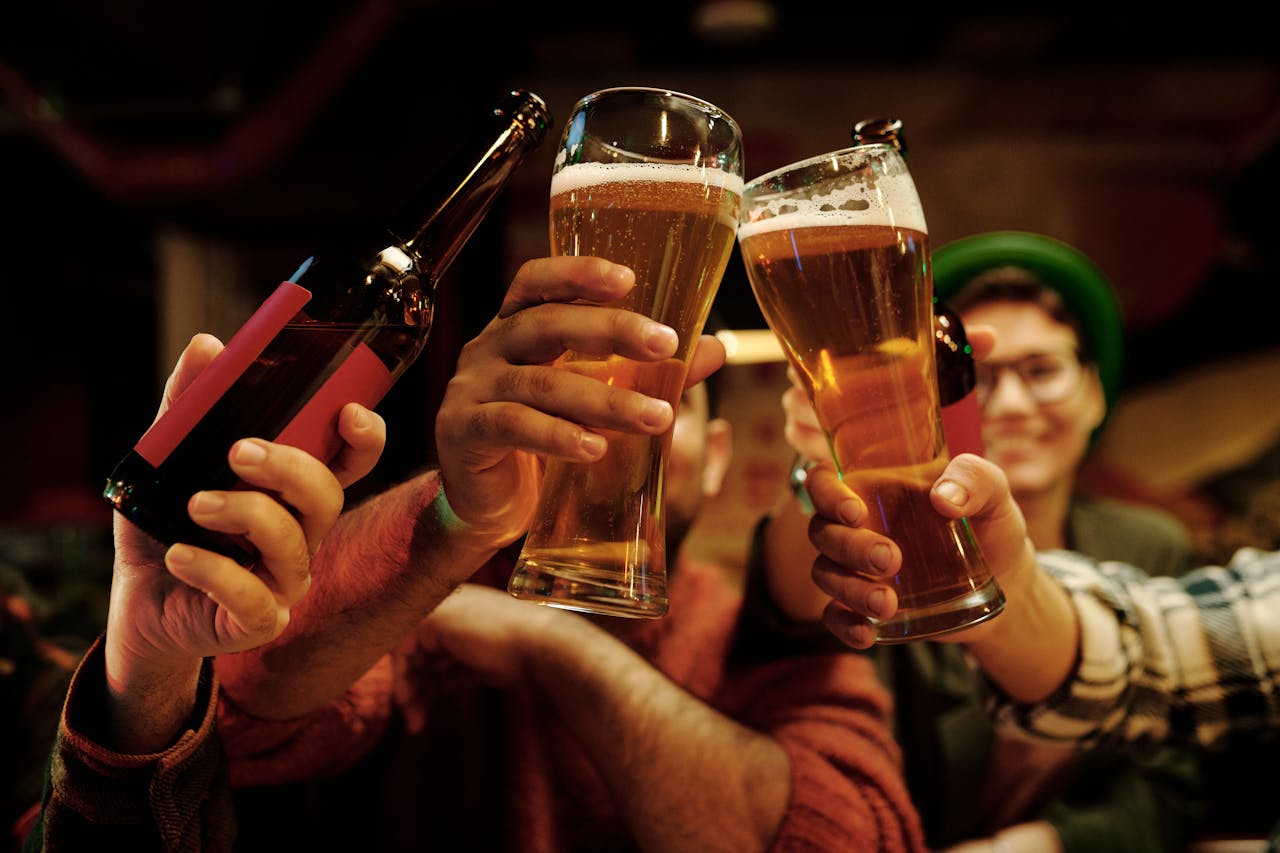10 Hidden Drinking Habits That Worry Health Experts More Than Binge Drinking

When it comes to alcohol consumption, most people are aware of the dangers of binge drinking. However, health experts are increasingly concerned about certain drinking habits that fly under the radar but can be just as damaging to your health in the long run. From subtle daily patterns to seemingly harmless social behaviors, these hidden habits can take a toll on your well-being. Here are 10 drinking habits that worry health experts more than binge drinking, and why you should be mindful of them.
1. Drinking Alcohol Every Day

While a glass of wine with dinner might seem harmless, daily alcohol consumption can have serious health consequences. Health experts warn that drinking every day, even in moderate amounts, can lead to liver damage, high blood pressure, and an increased risk of certain cancers. The body needs time to recover from alcohol’s effects, and consuming it regularly doesn’t give it that chance. Over time, this can result in a build-up of toxins in the liver and other organs, leading to chronic health issues. Even small daily drinking habits can add up, leading to a significant negative impact on your health.
2. Using Alcohol to Cope with Stress

Many people turn to alcohol as a way to unwind after a stressful day. However, using alcohol as a coping mechanism can quickly lead to dependence. Health experts are concerned about the long-term effects of this habit, as it can increase the risk of developing mental health disorders like anxiety and depression. Additionally, it can interfere with your ability to develop healthy coping strategies, creating a vicious cycle of stress and alcohol use that is difficult to break. Over time, this reliance on alcohol can lead to more serious psychological issues, making it harder to manage stress in healthy ways.
3. Drinking Alone

Drinking alone can be a red flag for health experts, as it is often associated with unhealthy drinking patterns. While social drinking is common, consuming alcohol in isolation can indicate that a person is using it as a way to escape or self-medicate. Health professionals worry that this behavior may lead to addiction or alcohol abuse, as it can be a sign of emotional distress or an attempt to mask underlying mental health issues. It’s important to be aware of how often you drink alone and to seek support if it becomes a regular habit. Drinking in isolation can also increase the likelihood of excessive drinking, as there are fewer social cues to moderate consumption.
4. Drinking Without Eating

Drinking on an empty stomach is a dangerous habit that can have immediate and long-term health effects. Alcohol is absorbed more quickly into the bloodstream when there is no food in the stomach, leading to quicker intoxication and a higher risk of alcohol poisoning. Health experts are concerned that this habit can also lead to poor decision-making, as people may drink more than they intended. Additionally, drinking without eating can irritate the stomach lining and increase the risk of ulcers and gastritis. It can also impair the body’s ability to process alcohol effectively, leading to an increased risk of negative health consequences.
5. Drinking Too Quickly

Whether you’re at a party or having a casual drink with friends, drinking too quickly can put a strain on your body. Health experts warn that consuming alcohol too rapidly can overwhelm the liver’s ability to process it, leading to a higher blood alcohol concentration (BAC). This can result in impaired judgment, increased risk of accidents, and long-term damage to the liver and other organs. Pacing yourself while drinking is essential to avoid these risks and ensure that your body can process the alcohol safely. Drinking slowly allows your body to metabolize alcohol at a healthier rate, reducing the chances of overconsumption.
6. Drinking to Improve Mood

Many people reach for a drink to lift their spirits when they’re feeling down. However, using alcohol as a mood booster can lead to dependency and emotional instability. Health experts caution that relying on alcohol to feel better can exacerbate mental health issues, such as depression and anxiety. Over time, this habit can make it harder to regulate emotions without alcohol, leading to a cycle of drinking to self-medicate. It’s important to seek healthier ways to manage your emotions and stress, such as exercise, meditation, or talking to a therapist. Turning to alcohol as a quick fix can mask underlying issues and prevent you from addressing the root causes of your emotional distress.
7. Drinking Excessively on Weekends

While binge drinking is often associated with excessive drinking in a single sitting, health experts are also concerned about people who drink excessively on weekends. This habit can have long-term consequences, as it puts stress on the liver and increases the risk of heart disease, stroke, and certain cancers. The body may not have enough time to fully recover from the effects of alcohol, leading to a cumulative impact on health. Experts recommend moderating alcohol consumption throughout the week to avoid the negative effects of weekend binges. Excessive weekend drinking can also disrupt your sleep patterns, affect your mental clarity, and contribute to feelings of fatigue during the week.
8. Drinking When You’re Tired

Drinking when you’re already tired or fatigued is another hidden drinking habit that health experts warn against. Alcohol is a depressant, and consuming it when you’re already feeling exhausted can make the effects more pronounced, leading to poor decision-making and a greater risk of accidents. Additionally, drinking when you’re tired can disrupt your sleep patterns, making it harder for your body to recover and recharge. This can lead to a vicious cycle of fatigue, alcohol consumption, and poor sleep quality. The lack of proper rest combined with alcohol consumption can impair cognitive function and increase the risk of long-term health issues.
9. Drinking to Fit In

Social pressures can often lead people to drink more than they normally would, especially in group settings where alcohol is present. Health experts are concerned that drinking to fit in can result in unhealthy drinking habits, as people may feel compelled to keep up with others or drink beyond their limits. This can lead to a loss of control over alcohol consumption and an increased risk of developing alcohol use disorders. It’s important to recognize when you’re drinking to please others and to set boundaries that prioritize your health. Drinking to fit in can also prevent you from truly enjoying social situations, as you may be more focused on keeping up with others than on your own well-being.
10. Drinking Low-Calorie or “Healthier” Alcohol

Many people opt for low-calorie or “healthier” alcohol options, thinking they are making a better choice for their health. However, health experts warn that these drinks can still have significant health risks, particularly when consumed in excess. Even though these beverages may have fewer calories, they still contain alcohol, which can lead to liver damage, impaired judgment, and long-term health issues. It’s important to remember that moderation is key, regardless of the type of alcohol you’re drinking. Just because a drink is marketed as being healthier or lower in calories doesn’t mean it is free from the harmful effects of alcohol.
Final Thoughts

These 10 hidden drinking habits may not seem as obvious as binge drinking, but they can have serious consequences for your health over time. Health experts emphasize the importance of moderation, self-awareness, and developing healthier coping strategies to ensure that alcohol doesn’t negatively impact your life. By recognizing these habits and taking steps to reduce or eliminate them, you can protect your health and improve your overall well-being. Whether you’re trying to cut back on alcohol or simply become more mindful of your drinking patterns, understanding these hidden habits is the first step toward better health.
Leave a Reply